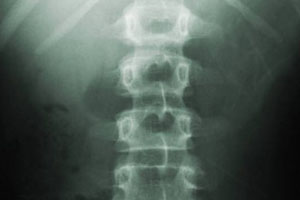
According to the Consumer Product Safety Commission (CPSC), there are more than 7,500 emergency room visits each year due to injuries related to backpacks or book bags. Because these health problems are so prevalent, many Staples students with swollen backpacks are at risk of serious injury.
Staples nurse Libby Russ says that students can avoid potential injuries by limiting the weight of the backpacks.
“A backpack should ideally weigh no more then 10 pounds. Though this might seem difficult, students need to remember that things like textbooks can usually be left at home, and lockers can be used to not carry too much at one time,” Russ said.
How much a healthy backpack should weigh is a much-debated number. Dr. Jonathan Schiller, an orthopedist in Rhode Island, said that there is no definite figure, but most specialists on the issue consider a backpack weighing 20% of a student’s body weight to be too heavy.
However, meeting either weight goal may seem out of reach to Staples students when an empty Swiss Army backpack, used by many, already weighs more then five pounds. Unfortunately for students, to meet Russ’ 10-pound goal, all the contents of a backpack–binders, notebooks, books and a multitude of other materials–must together weigh less than five pounds.
Many Staples students have taken measures into their own hands to trim the extra pounds off of their backpacks.
“To lessen the weight in my backpack, I leave binders at home when I drop a class that day, but I don’t use my locker to hold them,” said Liam Smith ’13.
According to staples students, teachers and administrators, disregarding lockers has become almost universal.
“Even if I knew my backpack would cause health problems, I still wouldn’t use my locker. It’s just too out of the way,” Will Horne ’13 said.
A standard textbook, such as Traditions and Encounters used in A.P. World History, alone weighs five pounds. On select days when bringing a textbook to school is required, many students end up carrying this heavy weight for the entire day.
According to Russ however, the weight of the backpack is not the only health concern.
“Backpacks straps should not be too low, and the backpack should not be worn over one shoulder because this will lead to the weight of the backpack being distributed unevenly throughout the body,” she said.
Russ also noted that the weight of a backpack is not distributed properly throughout a student’s body when he or she wears it sagging down the back.
Dr. Schiller agreed that how materials are carried is a huge contributing factor to backpack pain.
“Many doctors believe that using a shoulder bags or wearing a backpack over one will cause pain on the shoulder being used. This makes sense; backpacks are designed to be worn over two shoulders and spread the weight throughout the body.
Despite the health warning, students say they are willing to ignore the pain they feel from their backpacks.
“Occasionally I feel pain from my backpack, but I don’t do anything about it,” said Alec Wrubel ’13.
Russ said the long-term health effects can become much more serious than just the immediate pain of wearing a heavy backpack.
“Most of the effects of wearing backpacks that are too heavy, or improperly worn, will be long-term problems. Carrying materials in this way might throw off the body’s mechanics because the body is forced to compensate for the weight by using different muscles. This can lead to pain in places throughout the body, such as the neck and feet,” she said.
A study done in 2010 by the Department of Orthopedic Surgery at the University of California San Diego reports that. MRIs of students who wore heavy backpacks showed that Lumbar disks can become compressed or misaligned, leading to long-lasting pain through out the body.
However, Dr. Schiller said that the whether backpacks are causing long term health problems is largely unknown.
“MRIs taken of relatively small groups of students have shown that when backpacks are above 20% of a child’s body weight changes in disk behavior occur. Long term we do not know what the cause of this will be, it could mean a higher risk of back pain as an adult, but we are not sure yet,” he said.
Many Staples students say they would still not change the weight or wearing position of their backpacks if they knew it would lead to long-lasting back problems.
“I have to wear my backpack in order to bring everything I need to school. If that means I need back surgery, then I need back surgery,” Horne said.
However, According to Dr. Schiller there are many myths about what the health effects of backpacks can be.
“I’ve never see any actual injury resulting from wearing heavy backpacks. If there is already low back pain from something like a sports injury, could possibly add to the injury. Another myth is that this is the cause of Scoliosis. Backpacks will neither create scoliosis or make is worse,” he said.












































Harvey Lemonds • Nov 11, 2011 at 6:40 am
Can I make a suggestion? I feel youve bought one thing good here. However what in case you added a couple links to a web page that backs up what youre saying? Or maybe you possibly can give us one thing to look at, something that may connect what youre saying to something tangible? Just a suggestion. Anyway, in my language, there are usually not a lot good source like this.